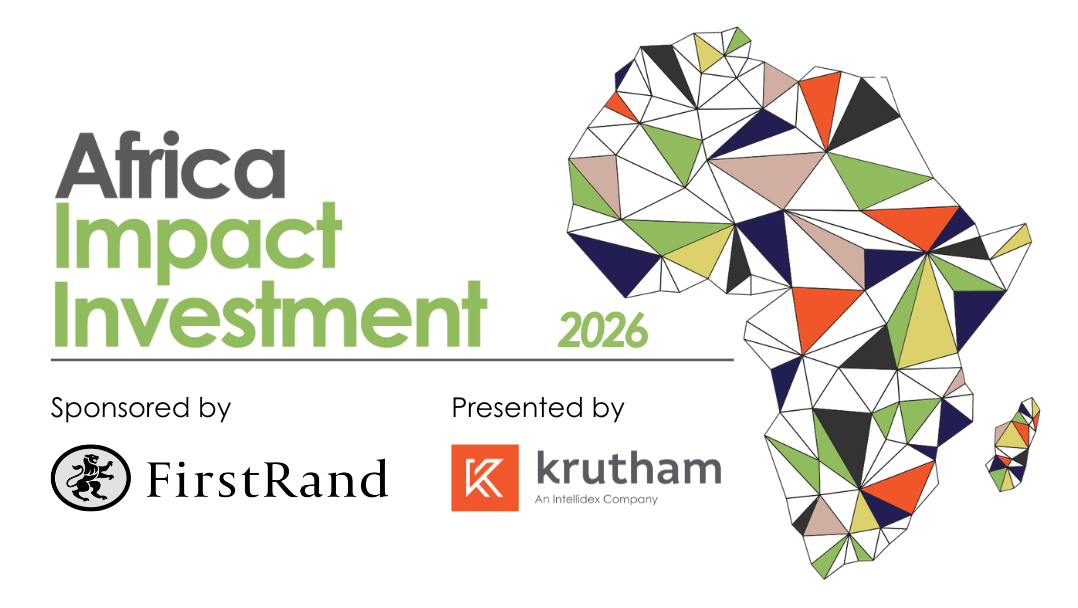KawiSafi Ventures
Awarded to funders deploying capital to support impact projects. Pension funds, endowments, corporations, banks, governments, development finance institutions, high net-worth individuals and public funders are eligible for consideration. The award highlights funders with an innovative funding approach, either as a provider of catalytic capital or a third party investor deploying capital into an innovative structure.
Overview
KawiSafi Ventures Fund I focuses on scaling companies that deliver clean, affordable energy and climate solutions to low-income populations in Africa, particularly in East Africa. The fund invests in businesses whose products and services inherently generate positive social and environmental impact, such as mitigating CO2 emissions, improving resilience for lower-income communities and supporting climate change adaptation.
The problem
Africa is estimated to need $2.4tn in climate finance by 2030 to meet its climate goals – yet only 12% of that funding is currently secured. One of the most critical gaps lies at the early growth stage, where many promising green economy businesses struggle to access capital. While private investment often targets either early-stage start-ups or well-established companies, those in the “missing middle” are frequently overlooked. As a result, high-impact businesses are unable to scale, limiting their ability to deliver meaningful climate solutions.
Innovative solution
By mobilising private investment through its two funds – KawiSafi Fund I and II – the firm targets scalable, low-carbon technologies that
directly serve underserved communities across Africa. What sets KawiSafi apart is its focus on companies that are beyond the startup phase
but still require support to scale their impact. By investing in off-grid energy and other climate smart innovations, KawiSafi not only bridges
the financing gap but also reduces emissions, builds climate resilience and fosters inclusive economic growth across the continent.
Delivering impact
KawiSafi tracks and reports on key impact metrics, including the number of people reached and CO2 emissions averted at the portfolio level. Each portfolio company is guided by a tailored impact thesis, aiming to maximise outcomes such as increased renewable energy use, job creation, income growth and gender diversity. Since 2018, KawiSafi has exceeded its impact targets, averting 45m tonnes of CO2 and positively affecting over 213m people worldwide as of September 2024. In its core markets, the fund has offset 8% of annual emissions, reached nearly half of the population living in poverty and advanced universal energy access goals.
Scaling up
Its successor fund, KawiSafi II is raising $140m to support climate solutions across Africa. Using a blended finance model, the fund
brings together public and private capital to invest in 10 to 15 companies. Each investment will range from $1m to $5m and focus on
clean energy, productivity, transport and logistics and nature-based climate solutions. The goal is to reduce 50m tonnes of CO2, reach 50m people and strengthen climate resilience for 4m more. In addition to funding, KawiSafi II provides technical assistance to its portfolio companies through a $5m Technical Assistance Facility. Backed by the Green Climate Fund and other partners, the TAF supports activities like developing gender and ESG action plans, training women, funding research for female engineers and strengthening local incubators.
Fund II uses a new finance structure designed to encourage more commercial investment and grow impact in Africa’s clean energy sector. Supported by the Green Climate Fund, Fund II includes a Junior Equity layer with two key features: first-loss protection and a different preferred return. First-loss protection covers early losses, lowering risk for investors. The preferred return means senior investors get paid first at a higher rate, while junior investors receive a lower return after.
This structure balances risk and reward better for private investors, addressing common concerns about investing in emerging markets and climate projects. So far, Fund II has secured over $30m from family offices and wealthy individuals in the US and Europe. To keep attracting investors, the fund needs to maintain their confidence by providing clear performance information. Because the structure is complex, clear communication and strong governance are also important.
KawiSafi’s scaling strategy has evolved from initially supporting the off-grid energy sector in East Africa through targeted investments
across the value chain. As portfolio companies grew and expanded, KawiSafi adapted its approach to meet changing needs. With Fund
II, it has:
- Broadened geographic focus to invest across the whole of Africa, reflecting the continent’s evolving clean energy landscape.
- Improved impact measurement, especially for projects beyond solar home systems, with greater emphasis on climate adaptation and resilience.
- Increased fund size to nearly double Fund I, addressing the need to support companies in later growth stages. Fund II also uses
blended finance tools, including first-loss capital, to reduce risk and attract more institutional investors.
Share
This research report was issued by Krutham South Africa Pty Ltd.
Krutham aims to deliver impartial and objective assessments of securities, companies or other subjects. This document is issued for information purposes only and is not an offer to purchase or sell investments or related financial instruments. Individuals should undertake their own analysis and/or seek professional advice based on their specific needs before purchasing or selling investments.
The information contained in this report is based on sources that Krutham believes to be reliable, but Krutham makes no representations or warranties regarding the completeness, accuracy or reliability of any information, facts, estimates, forecasts or opinions contained in this document. The information and opinions could change at any time without prior notice. Krutham is under no obligation to inform any recipient of this document of any such changes.
No part of this report should be considered as a credit rating or ratings product, nor as ratings advice.
Krutham does not provide ratings on any sovereign or corporate entity for any client.
Krutham, its directors, officers, staff, agents or associates shall have no liability for any loss or damage of any nature arising from the use of this document.
Disclosure
The opinions or recommendations contained in this report represent the true views of the analyst(s) responsible for preparing the report. The analyst’s remuneration is not affected by the opinions or recommendations contained in this report, although his/her remuneration may be affected by the overall quality of their research, feedback from clients and the financial performance of Krutham group entities.
Krutham staff may hold positions in financial instruments or derivatives thereof which are discussed in this document. Trades by staff are subject to Krutham’s code of conduct which can be obtained by emailing mail@krutham.com.
Krutham may have, or be seeking to have, a consulting or other professional relationship with the companies, sovereigns or individuals mentioned in this report. A copy of Krutham’s conflicts of interest policy is available on request by emailing mail@krutham.com. Relevant specific conflicts of interest will be listed here if they exist.
- Krutham provides independent advice and independent research to a wide range of investors and financial institutions on Eskom, Denel, Transnet, Land Bank and SAA. Krutham’s interactions with all clients on Eskom, Denel, Transnet, Land Bank and SAA may include business confidential information but does not include MNPI and so does not provide a conflict. Krutham does not ‘act’ or ‘advocate’ for or ‘represent’ any of these clients. Krutham has regular interactions with government, Eskom, Denel, Transnet, Land Bank, SAA and other related entities connected with the SOE situation but does not provide paid consulting services or paid advice to any of these entities. These interactions are governed by Krutham’s own conflicts of interest policy as well as secrecy rules of the respective institutions or state-owned companies.
- Krutham provides a range of services into ‘organised business’ groupings in South Africa, which includes independent bespoke research and advice. Krutham is compensated for these services. Krutham does not ‘act for’ or ‘advocate’ for or ‘represent’ any of these clients.
- Krutham is currently involved in policy design work on a number of government priorities.
Copyright © 2023. All rights reserved. This document is copyrighted to Krutham South Africa Pty Ltd.
This report is only intended for the direct recipient of this report from a Krutham group company employee and may not be distributed in any form without prior permission. Prior written permission must be obtained before using the content of this report in other forms including for media, commercial or non-commercial benefit.

